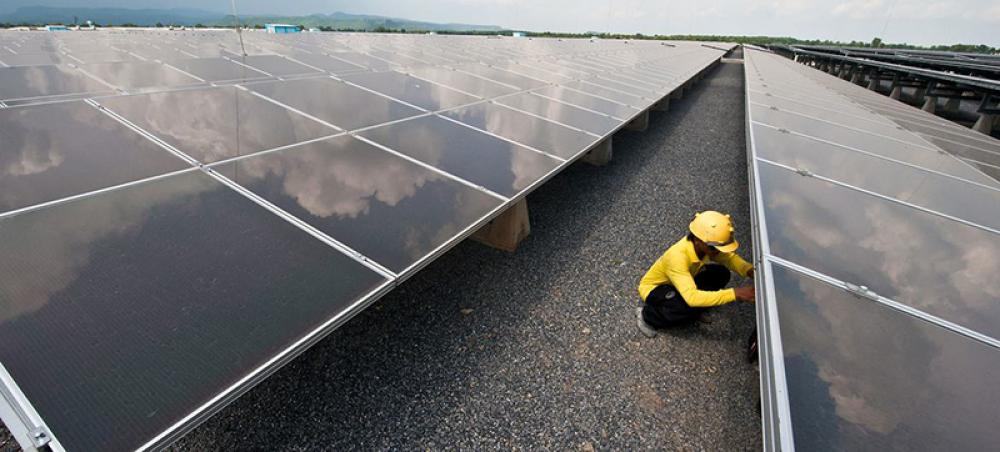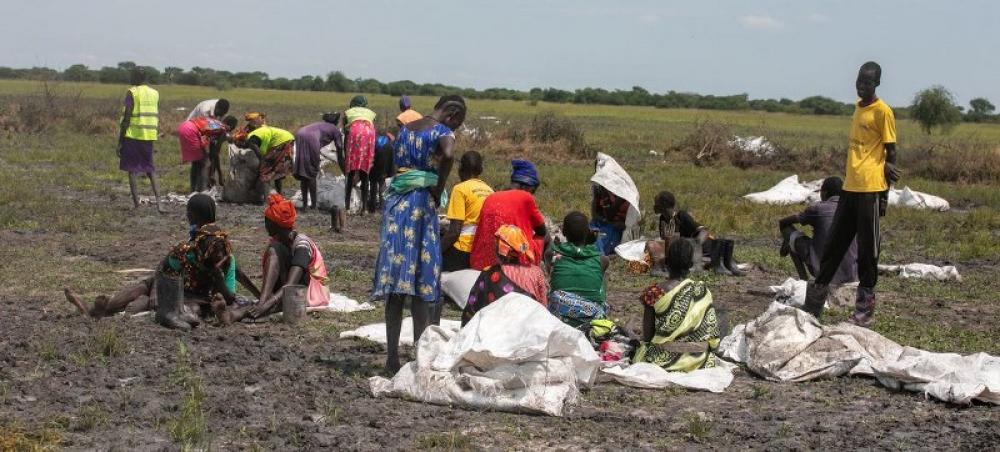Just Earth News | @justearthnews | 07 Jun 2023, 05:53 am Print
 Sustainable Energy
Sustainable Energy Image: ADB
New York: The world is not on track to meet Sustainable Development Goal 7, designed to ensure access to affordable, reliable energy for all, a new report from the UN and partners revealed on Monday.
Tracking SDG 7: The Energy Progress Report, from the International Energy Agency (IEA), the International Renewable Energy Agency (IRENA), the UN Statistics Division (UNSD), the World Bank, and the World Health Organization (WHO), warns that current efforts are not enough to achieve the SDG 7 on time.
There has been some progress on specific elements of the drive to reach SDG 7 – for example, the increased rate of using renewables in the power sector – but progress is insufficient to reach the targets set forth, in time for the 2030 deadline.
SDG 7 is to ensure access to affordable, reliable, sustainable and modern energy. The goal includes reaching universal access to electricity and clean cooking, doubling historic levels of efficiency improvements, and substantially increasing the share of renewables in the global energy mix, said the report authors.
Big benefits reaching SDG 7
Reaching the goal, will have a deep and positive impact on people’s health and well-being, helping to protect them from environmental and social risks such as air pollution, and expanding access to primary health care and services.
The global energy crisis, exacerbated by the war in Ukraine, is expected to stimulate the deployment of renewables and improve energy efficiency, as some governments boost investment.
However, IRENA estimates show that international public financial flows in support of clean energy in low and middle-income countries have been decreasing since before the COVID-19 pandemic and funding is limited to a small number of countries. To meet SDG 7 targets, it is going to be necessary to structurally reform international public finance and define new opportunities to unlock investments, the authors said.
The report also finds that mounting debt and rising energy prices are worsening the outlook for reaching universal access to clean cooking and electricity.
Falling short
Current projections estimate that 1.9 billion people will be without clean cooking facilities, and 660 million without electricity access in 2030 if the status quo continues.
These gaps will negatively impact the health of our most vulnerable populations and accelerate climate change, says the report.
According to WHO, 3.2 million people die each year from illness caused by the use of polluting fuels and technologies, which increase exposure to toxic levels of household air pollution.
Protect the next generation
Tedros Adhanom Ghebreyesus, head of the WHO, said: “We must protect the next generation by acting now. Investing in clean and renewable solutions to support universal energy access is how we can make real change. Clean cooking technologies in homes and reliable electricity in healthcare facilities, can play a crucial role in protecting the health of our most vulnerable populations.”
Stefan Schweinfest, of the UN Statistics Division, said that despite a recent slowdown in electrification figures, the number of people without electricity almost halved over the past decade, from 1.1 billion, in 2010 down to 675 million in 2021.
"Nonetheless, additional efforts and measures must urgently be put in place to ensure that the poorest and hardest-to-reach people are not left behind. To reach universal access by 2030, the development community must scale up clean energy investments and policy support.”
- Israel wildfire brought under control, thousands evacuated
- UN report says climate crisis driving surge in gender-based violence
- Turkey: Magnitude 6.2 earthquake hits Istanbul, no casualties
- Two and a half million tonnes of debris need to be removed in earthquake-hit Myanmar, says UNDP
- Magnitude 5 earthquake hits Pakistan, tremors felt in Jammu and Kashmir






